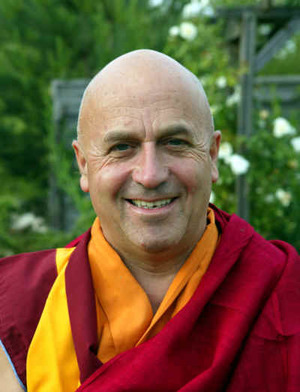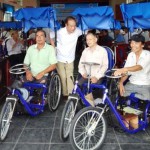Buddha Fest 2015: One Practitioner’s Take
Written by: Mark Rasmuson ~~
For the last 3 years living here in Vietnam, I have eagerly anticipated the annual offerings from Buddhafest, a 4-day splurge of Buddhist films, speakers, and music held in Washington in the early summer. For a few extra dollars, as a subscriber to Tricycle magazine, I’ve been able to access many of the festival talks and films on the Tricycle website. Given the isolation of living here, mostly alone, this audiovisual feast has provided welcome stimulation and sustenance.
There were some marvelous films this year, documentaries on the dharma taking root in the West (Dharma Rising); lives of two of the most interesting and inspiring women Buddhist teachers, Khandro Rinpoche and Roshi Joan Halifax; and the story of Nicky Vreeland, a rich playboy fashion photographer (grandson of Vogue editor Diana Vreeland) who became a monk in India 30 years ago and was recently appointed by the Dalai Lama as the first Western abbot of a Tibetan Buddhist monastery. There were inspiring talks as well, two of which struck a particularly responsive chord in me–those by teachers Matthieu Ricard and Tara Brach–each vividly demonstrating what Buddhism is bringing to help solve some of the most pressing challenges we face.

The Venerable Bhikku Bodhi of Buddhist Global Relief made similar arguments in a talk he gave at an unprecedented meeting of Buddhist leaders at the White House a few months ago. His presentation closes with an explanation of how we can take action following “The Ecological Noble Eightfold Path.” I am so happy to see these Buddhist leaders step up, as Pope Francis recently did, and speak out forcefully about climate change, an issue I have come to feel deeply about.
In her Buddhafest talk about “the trance of the unreal other,” Tara Brach spoke movingly about the racial fissures that have opened up in our country again, a most extreme manifestation of self vs other that can be seen, however, even in Buddhist sanghas (mostly-white) that are not welcoming to people of color. Despite our best intentions and rhetoric to the contrary, our reptilian brains keep categorizing others as fundamentally different and prevent us from truly feeling the suffering of those who are not like us.
To bridge the gulf between self and other and become instruments of healing, Tara reminded us we must allow our hearts to be deeply touched. She quoted Rumi: “Your path is not to seek the love, but to seek all the barriers within yourself that you have built against it.” She made me realize how I have felt troubled and yet removed from the events in Ferguson and Baltimore and Charleston, stories of great suffering but among the endless suffering in the world I read about from afar.
 What has touched me to the core has been my contact here with severely disabled people, part of my job. They include bedraggled veterans of the war, amputees who need a new prosthetic leg or wheelchair. But most heartbreaking are the kids who may have inherited damaged genes as a result of the war and are sometimes hopelessly incapacitated. They and their parents, mostly very poor, face long lives of sustained hardship with little help. Being with them puts my own suffering into perspective. It reminds me that we are all disabled in some way. And it has encouraged me to try to make a heartfelt connection with them, hoping to make some kind of positive difference even in these saddest of circumstances.
What has touched me to the core has been my contact here with severely disabled people, part of my job. They include bedraggled veterans of the war, amputees who need a new prosthetic leg or wheelchair. But most heartbreaking are the kids who may have inherited damaged genes as a result of the war and are sometimes hopelessly incapacitated. They and their parents, mostly very poor, face long lives of sustained hardship with little help. Being with them puts my own suffering into perspective. It reminds me that we are all disabled in some way. And it has encouraged me to try to make a heartfelt connection with them, hoping to make some kind of positive difference even in these saddest of circumstances.
